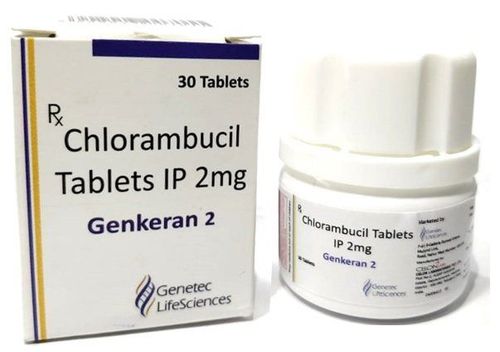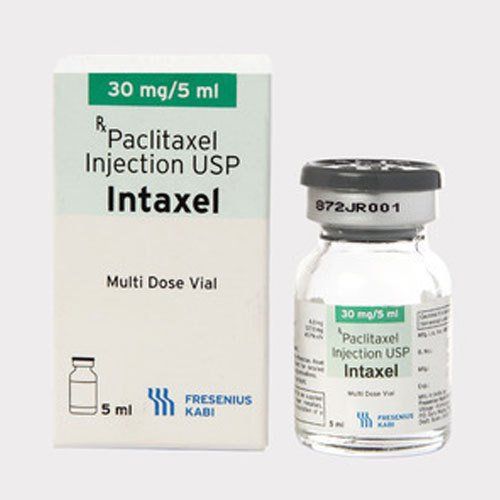This is an automatically translated article.
Topotecan is a topoisomerase inhibitor, used in the treatment of cancer. Let's find out information about the drug through the article below:
1. What is Topotecan Oral?
Topotecan Oral is a Topoisomerase inhibitor, produced in capsule form. Topotecan works by blocking the action of an enzyme in cells called topoisomerase. This enzyme is required for cell proliferation and tumor growth. Cells need this enzyme to keep their DNA in the proper shape when they are dividing. The use of Topotecan Oral is to block this enzyme that leads to the breakdown of DNA, thereby killing cancer cells.
2. Uses of Topotecan Oral
Topotecan Oral is used in the treatment of recurrent small cell lung cancer in patients with a prior complete or partial response. Topotecan Oral at least 45 days from the end of the first chemotherapy.
3. How to use and dose Topotecan
How to use:
Topotecan Oral is taken at the same time every day with a glass of water. Food does not affect the effect of the drug. When taking, you should swallow the capsule whole, do not open, chew or crush. If you are unable to swallow capsules, talk to your doctor for other options. If you vomit after taking 1 dose, take your next scheduled dose. Do not take two doses at the same time to make up for the dose you have vomited.
Dosage:
The recommended dose of the drug is 2.3 mg/m2/day, taken once a day for 5 consecutive days (one course of treatment) and repeated after 21 days. Depending on your condition: Your condition, type of cancer and the treatment regimen you are using, your doctor will recommend the appropriate dose and course of treatment.
4. Possible side effects of Topotecan
Some of the most common or important side effects of Topotecan Oral include:
Anemia (reduced red blood cell count): Your red blood cells are responsible for carrying oxygen to the tissues of your body. body. When your red blood cell count is low, you may feel tired or weak. You should tell your doctor if you experience shortness of breath, shortness of breath, or chest pain. If your red blood cell count is too low, you may need a blood transfusion. Leukopenia in the blood: White blood cells (WBCs) have an important role in fighting infections. While being treated, your white blood cell count may drop, putting you at higher risk of infection. You should tell your doctor or nurse right away if you have a fever (temperature higher than 38°C), sore throat or cold, trouble breathing, cough, burning when urinating, or a wound that doesn't heal. . Thrombocytopenia: Platelets play an important role in the formation of blood clots. Therefore, when your platelet count is low, you have a higher risk of bleeding. Tell your doctor right away if you have any bruising or bleeding that won't stop, including nosebleeds, bleeding gums, or blood in your urine or stools. If the platelet count is too low, you may need a platelet transfusion. Nausea or vomiting: Nausea or vomiting may occur during treatment, which can be corrected with the use of medication or the use of salt water, ginger tea. In addition, dietary changes may be helpful; Do not use foods that can aggravate symptoms such as greasy/fatty foods, spices or sour fruits (lemons, tomatoes, oranges). Diarrhea: Your doctor may prescribe medicine to treat diarrhea. To overcome this situation, you should eat low-fiber, bland foods such as white rice and chicken. Do not eat raw fruits, vegetables, whole grain breads, cereals and nuts. Soluble fiber that can help relieve pain includes: apple sauce, bananas (ripe), canned fruit, oranges, boiled potatoes, white rice, flour products such as flour, oatmeal. Drink 8-10 glasses of water a day to avoid dehydration. Hair loss: Your hair may become thin, brittle, or fall out. This usually occurs 2 to 3 weeks after starting treatment. Fatigue: Common during cancer treatment. Therefore, you should plan to rest during the day in accordance with your health status. Measures to overcome fatigue include: Exercise, gentle daily walking. Less common side effects of Topotecan Oral may include:
Lung Changes: Topotecan Oral may be the cause of interstitial lung disease. Tell your doctor right away if you have symptoms of shortness of breath, cough, or wheezing.
Sexual & Reproductive Concerns: Topotecan Oral may affect your reproductive system, resulting in your menstrual cycle or sperm production becoming irregular or permanently stopped. Women may experience symptoms of menopause including hot flashes and vaginal dryness. In addition, sexual desire may decrease during the use of the drug. You may want to consider sperm banking or egg harvesting if you may want to have children in the future. Discuss these options with your doctor.
5. Topotecan Oral Drug Interactions
Topotecan oral drug may interact with:
Amiodarone, Azithromycin, Captopril, Clarithromycin, Conivaptan, Cyclosporine, Diltiazem, Dronedarone, Erythromycin, Felodipine, Itraconazole, Ketoconazole, Lopinavir, Ritonavir.
Tell your doctor before starting treatment about all the medicines and supplements you are taking to limit possible drug interactions.
6. Notes when taking Topotecan oral medicine
Use the correct amount of Topotecan Oral for each use. Before each dose, check that what you are taking is correct for what you have been prescribed. Store your medication in its original, labeled container in the refrigerator. Topotecan Oral should not be stored in the box. Keep container out of reach of children and pets. When using Topotecan Oral, you and your caregiver should wear gloves or pour the medicine directly from the container into the lid, small cup or directly into your hands, avoiding touching the tablet. Wash your hands before and immediately after using the medicine. Pregnant or nursing women should not prepare Topotecan Oral for you. Above is some information about the use of Topotecan medicine. If you have any questions, you should consult your doctor or pharmacist before taking the medicine.
Please dial HOTLINE for more information or register for an appointment HERE. Download MyVinmec app to make appointments faster and to manage your bookings easily.
Reference sources: oncolink.org, webmd.com












